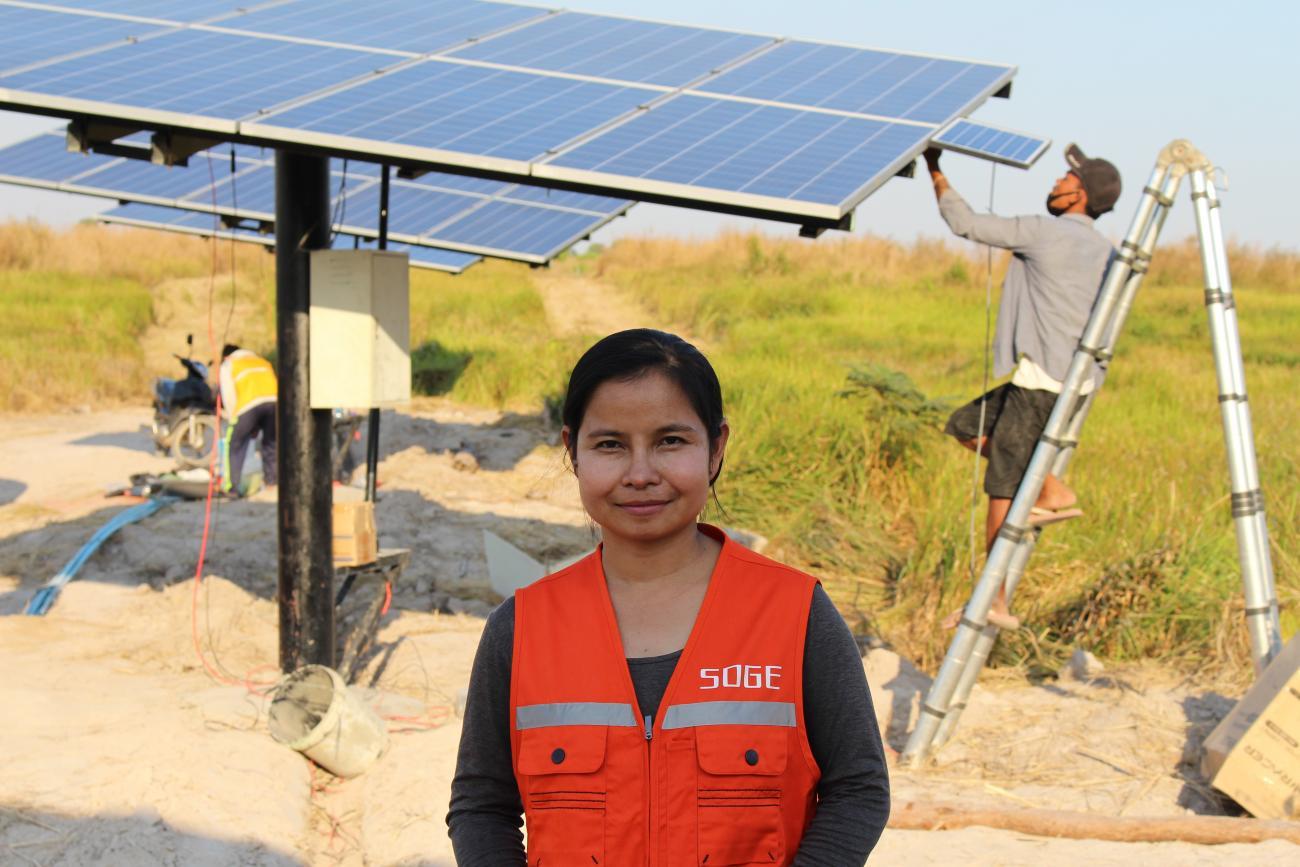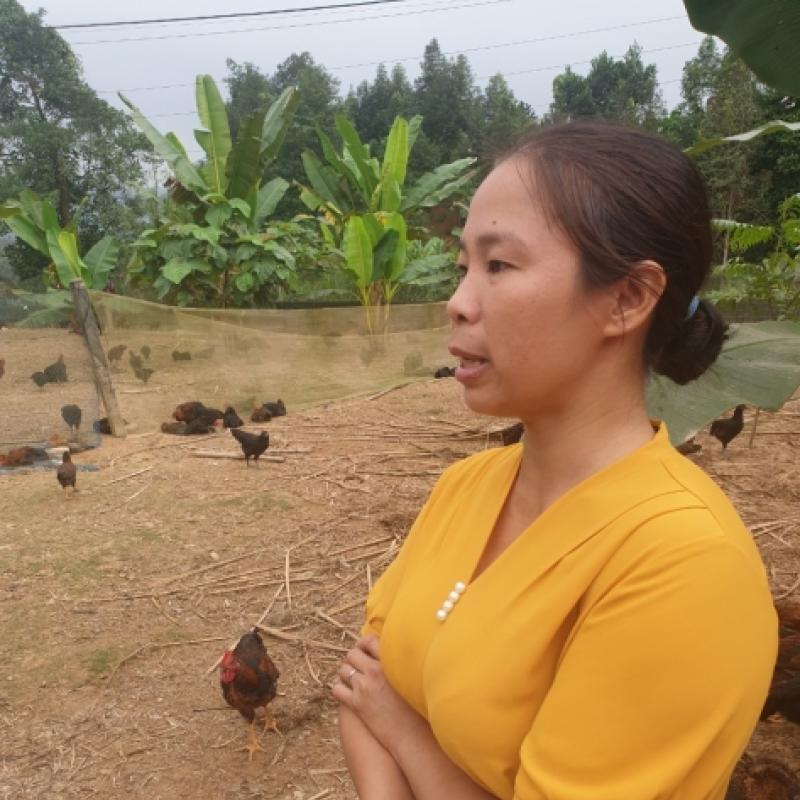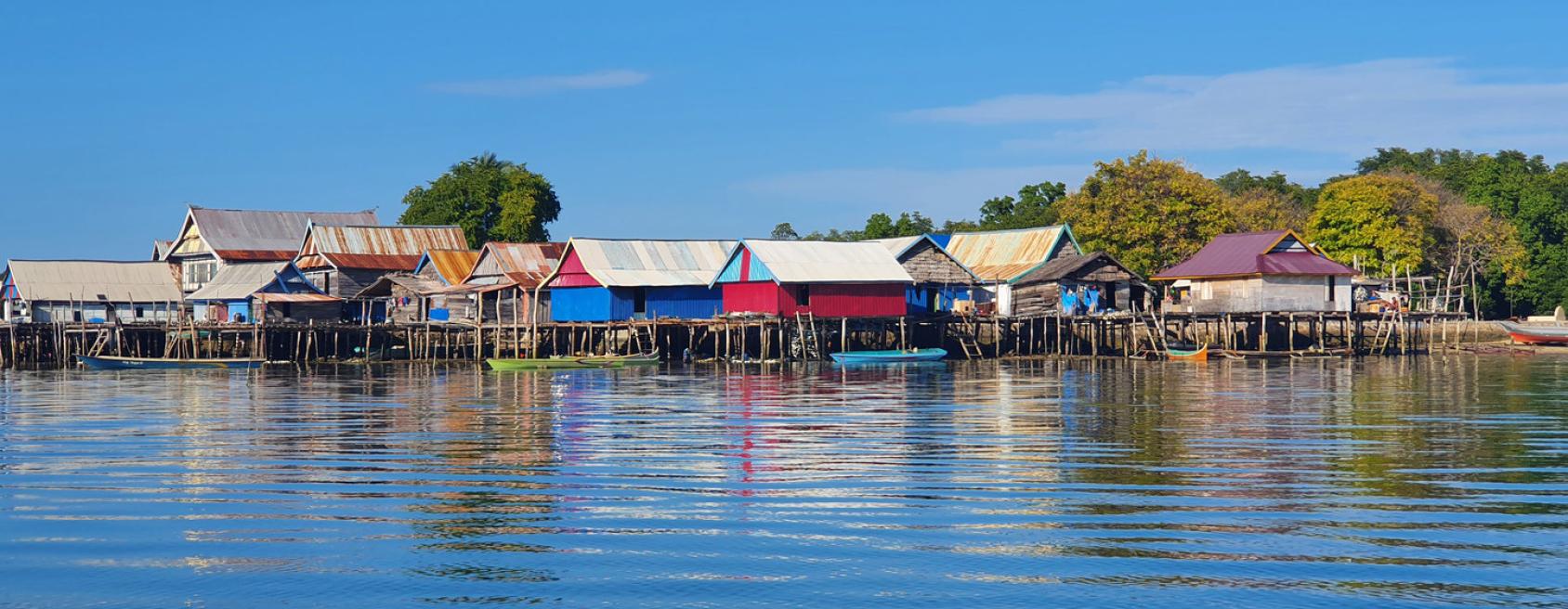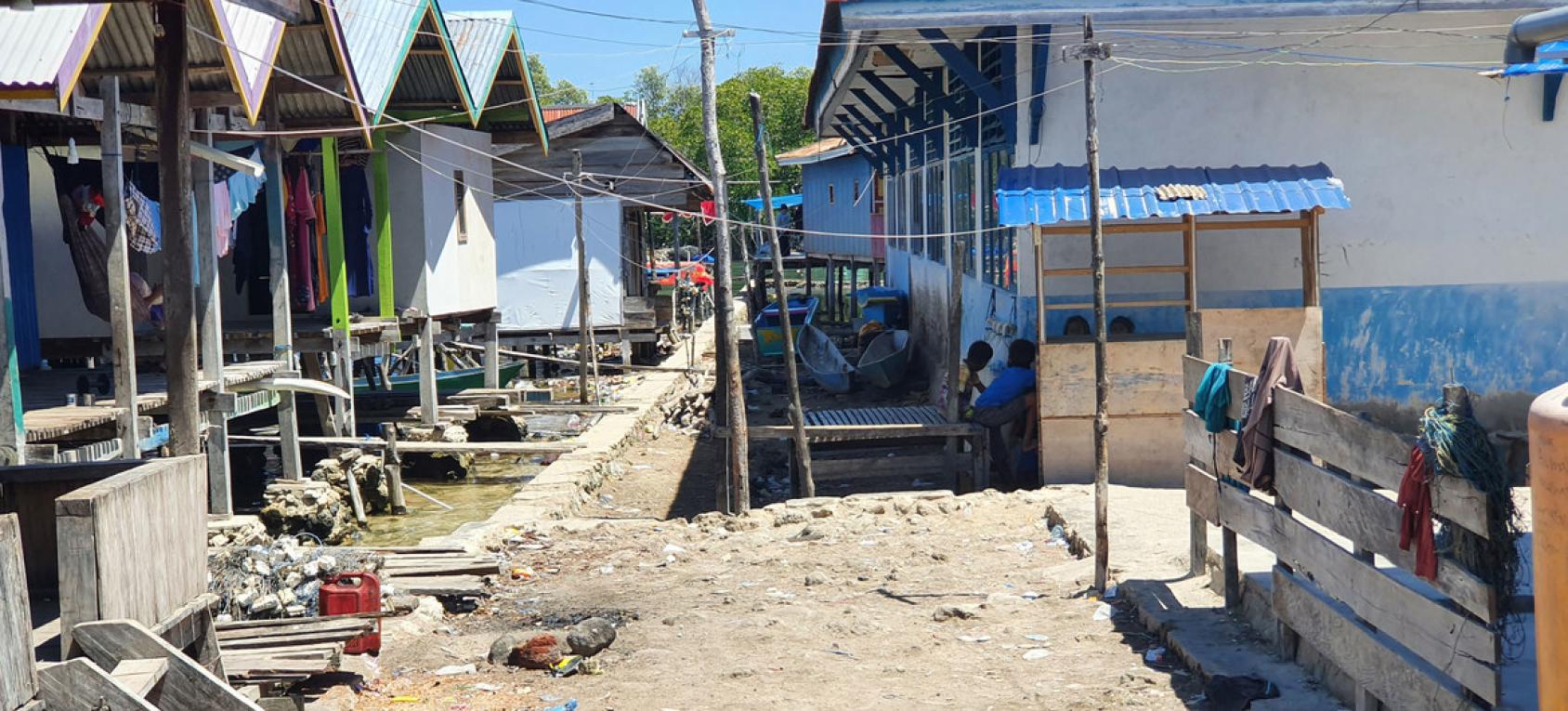A Brighter Future: Women in Southeast Asia Embrace Solar Power

In Southeast Asia, economic development over the past decade has lifted millions of people out of poverty, while dramatically increasing their demand for energy. Millions do not have adequate access to electricity. Today, we highlight three stories of women in the region who harness solar power to empower themselves, their families and their compatriots.
Leading the way in Cambodia’s green energy sector
When Thida Kheav started working for a private solar company in 2004, her passion for solar was kindled. “I saw the benefits that solar energy can offer. It helps local people save time and budget and have electricity for their children.”
She later started her own business. “We want to combine renewable energy with modern technology to support the agriculture sector in Cambodia.”
Her path to success was winding. “I had little money when I started this business with my husband,” she says. “Our approach started off with just selling our ideas to customers and if they ordered, we had to borrow money with high-interest rates in order to start developing the products for our clients.”
Thida is well aware that women face many barriers when working in the green industry. “I believe that more women are interested in this renewable energy sector just like myself, but they have limited knowledge and interest in doing proper research on it.”
Thida joined the UN programme, ‘Economic Empowerment for Women in Green Industry’, through which she received a series of training on gender mainstreaming in green industries.
She has high hopes for women and the green industry in Cambodia.
“I want to see more women engaged and represented in technology and green industry,” she says. “I want to raise more awareness about ecological issues in Cambodia, to help other people engage in more sustainable behaviour, and increase knowledge and R&D together in renewable energy.”
Green chicken coops in Viet Nam

Do Thi Phuong, a 42-year-old mother of two living in a small village in Viet Nam, is the primary breadwinner in her family of six. She has always been the rock for her family in trying times, but COVID-19 has put her resolve to test like never before.
Small farmers like Phuong produce 90% of Viet Nam’s poultry, but they are very vulnerable to climate change, natural disasters and unexpected shocks like COVID-19. The economic pain from prolonged lockdowns, travel restrictions and social distancing rules are acutely felt in rural markets.
“The village roads that were usually busy with many traders coming to buy chickens, fish and cinnamon products, were empty,” Phuong laments, as lockdowns meant an income loss of up to 70% for her family.
Even as chicken prices crashed, her electricity costs doubled, because rearing chickens requires food and electricity and her children have been staying at home. Her meagre income was stretched to its limits, even after cutting expenses and taking out a loan.
Things have taken a brighter turn with solar energy. Through UNEP’s EmPower project, Phuong is procuring solar-powered chicken incubation and ventilation equipment. The monthly electricity cost for heating, ventilation and lighting for chicken rearing will be almost zero with the solar system. EmPower and its partner CHIASE are helping Phuong to develop her business plan and to select and procure the most suitable equipment.
The green chicken coops are scalable, bringing in cash and helping struggling communities bounce back from the economic crisis. Around 300 women farmers across Viet Nam are reaping the benefits of renewable energy and establishing new business models for livestock rearing, agricultural and herbal product processing, and drying noodles, fish, and fruit.
For Phuong, the new technology is a sign of hope. “I hope that I can use solar energy to save on the cost of chicken production and I hope it will help my family to recover from COVID-19,” she says.
Indonesia's energy patriot: accelerating equitable access to power

On 17,000 islands sprawled across three different time zones, millions of Indonesian villagers have intermittent power supply for less than 12 hours a day.
Growing up in a rural village, 29-year-old Ristifah experienced coping with a limited electricity supply first-hand. “We only had three hours of electricity a day”.
But things may change thanks to Ristifah and 22 other Indonesian “energy patriots.” Recruited by Indonesian Ministry of Energy and Mineral Resources (MEMR) as part of the UN Development Programme’s (UNDP) ACCESS clean energy project, they will oversee the installation of 1.2 MW off-grid solar-power plants, providing electricity for around 20,000 people in remote villages.
Ristifah will be assigned to Muna, a coastal fishing village heavily dependent on fuel-fired generators for electricity. Such generators often cannot meet communities’ power needs, while emitting toxic fumes that are bad for the environment and people’s health, causing health issues such as respiratory illnesses and cancer.
Ristifah bears the heavy responsibility of ensuring the success of the project, but it’s one she’s keen to embrace. She will move 1,500 km away from her home on Indonesia’s most populous island of Java to take up her post as Muna’s energy facilitator. But she says that the chance to make a difference in the lives of her compatriots makes that sacrifice worthwhile.

“I hope to inspire more girls to achieve higher education,” she said. “I dream of the day when the houses sparkle with lights that the community installed, and children can have a better future.”
Those sparkling lights will help lessen inequalities between Indonesians across the country according to the UN Resident Coordinator in Indonesia Valerie Julliand.
“The difference in the pace of development between urban and rural areas has often been stark, in large part due to discrepancies in access to power.” She says the work undertaken by the energy patriots will “ensure communities have a say in how important infrastructure projects that affect their lives are developed. They can go a long way towards addressing urban-rural inequality.”
This story draws from previously published stories by UNCTs in Cambodia and Indonesia, and by UNEP. Editorial support provided by Lyla Peng and Paul VanDeCarr of the Development Coordination Office. For more information on the United Nations' work in the Cambodia and Indonesia, please visit the UN in Cambodia and Indonesia country teams’ websites. To learn more about the results of our work in this area and beyond, please read the UNSDG Chair Report on DCO.













